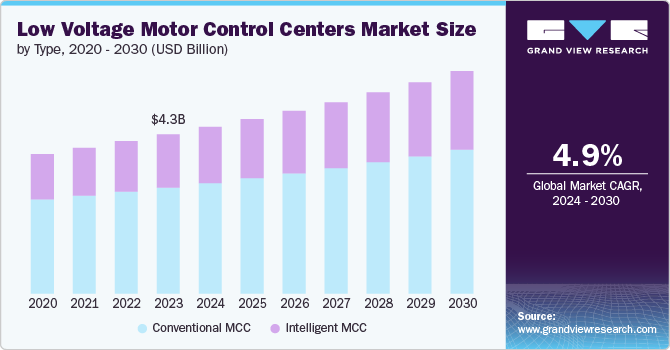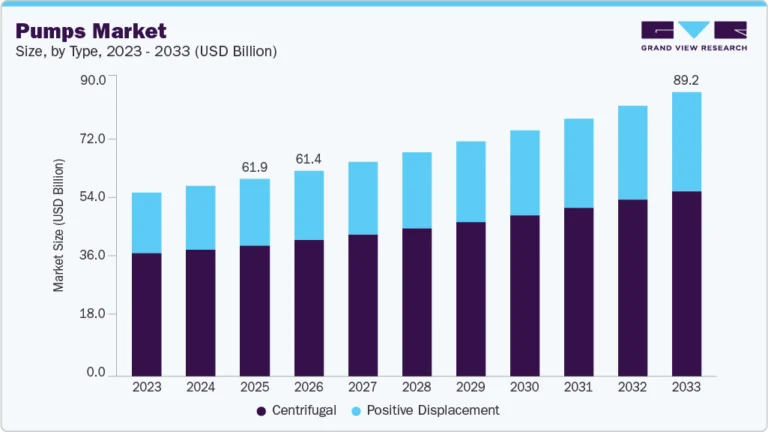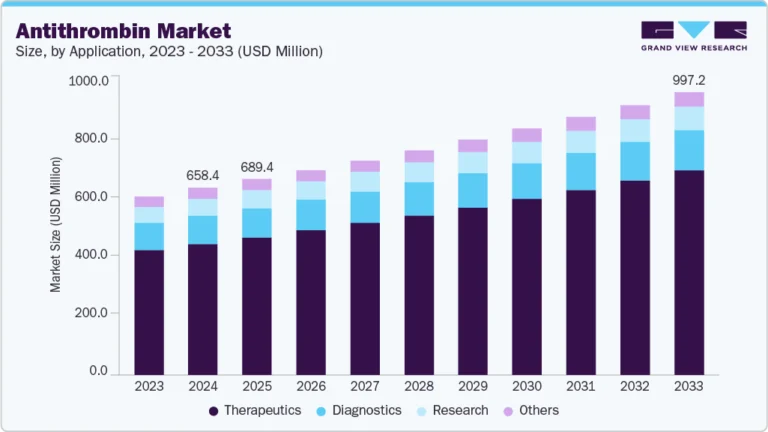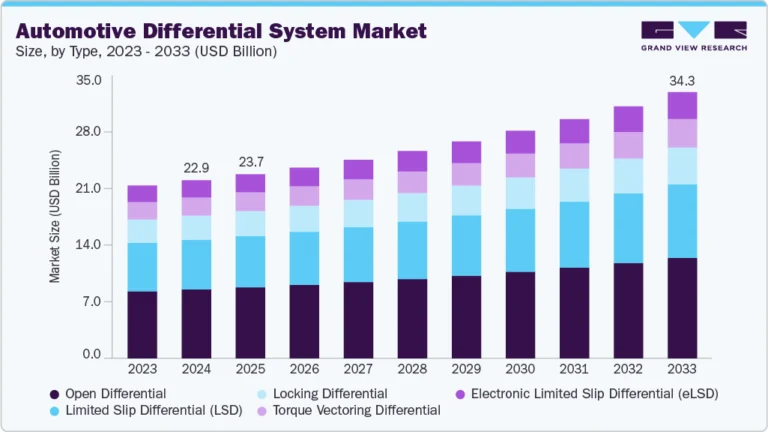Automotive Glass Market Size, Share & Trends Analysis growing at a CAGR of 4.5% from 2025 to 2030
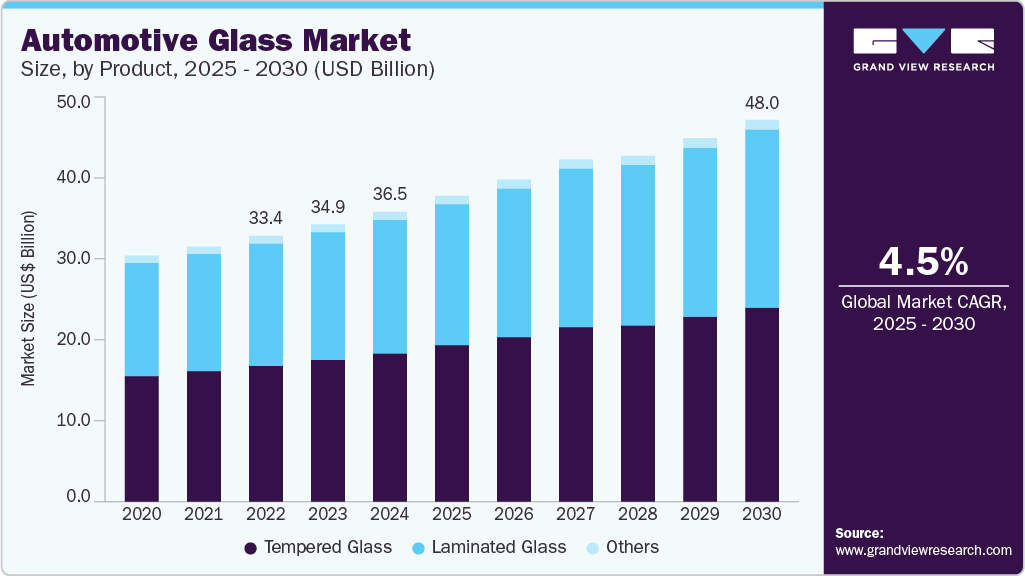
The global automotive glass market size was estimated at USD 36.48 billion in 2024 and is projected to grow at a CAGR of 4.5% from 2025 to 2030. An increasing emphasis on lightweight cars because of rising harmful emissions from vehicles that adversely affect the environment is driving glass penetration in the automotive industry.
Key Highlights:
- Asia Pacific dominated the automotive glass market with the largest revenue share of 44.1% in 2024
- By vehicle type, the passenger cars segment led the market with the largest revenue share of 68.5% in 2024
- By product, the tempered glass segment led the market with the largest revenue share of 51.1% in 2024
- By application, the windscreen segment led the market with the largest revenue share of 38.4% in 2024
- By end use, the OEM segment led the market with the largest revenue share of 81.0% in 2024, as the majority of automotive glass is used for vehicle production
Request a free sample copy or view report summary: https://www.grandviewresearch.com/industry-analysis/automotive-glass-market/request/rs1
According to the International Organization of Motor Vehicle Manufacturers (OICA), the production of automobiles reached 92.5 million vehicles globally in 2024. The substantial production volume is attributed to the development of the automotive manufacturing sector, particularly in countries such as China and India, owing to increasing government initiatives regarding motor vehicle regulations.
The automotive glass industry is experiencing significant advancements, with technologies like smart glass and Gorilla Glass enhancing vehicle comfort, efficiency, and safety. Gauzy’s advanced smart glass technologies are revolutionizing the automotive industry by integrating dynamic light and vision control into vehicle design. Their Suspended Particle Device (SPD) and Polymer Dispersed Liquid Crystal (PDLC) innovative glass solutions offer instant opacity adjustment, UV and infrared light blocking, and glare reduction. These capabilities enhance passenger comfort, improve energy efficiency, and contribute to safety by reducing heat buildup and glare. Notably, leading automakers like Mercedes-Benz, Ferrari, and BMW have adopted Gauzy’s smart glass, underscoring its growing importance in the automotive sector.


